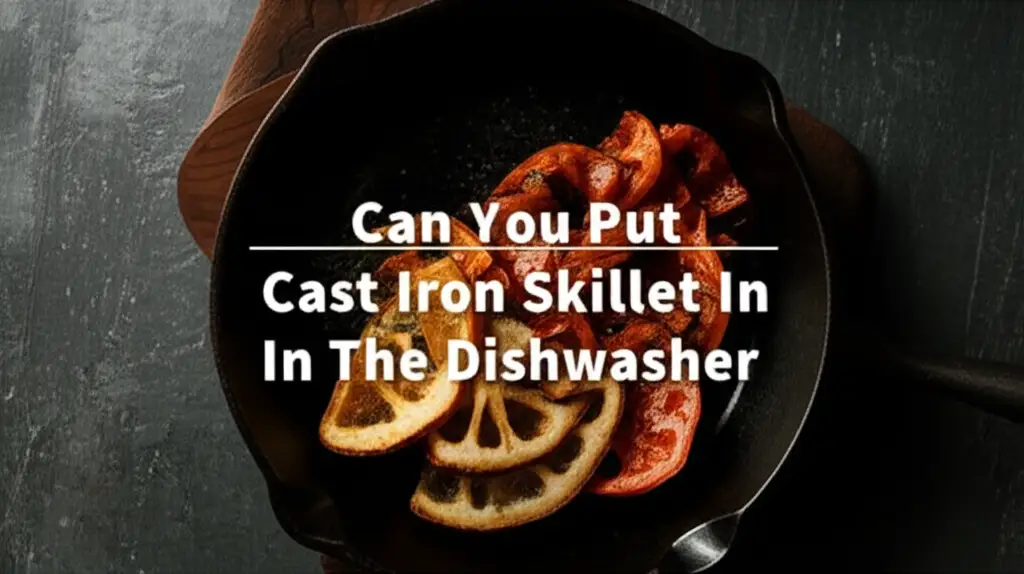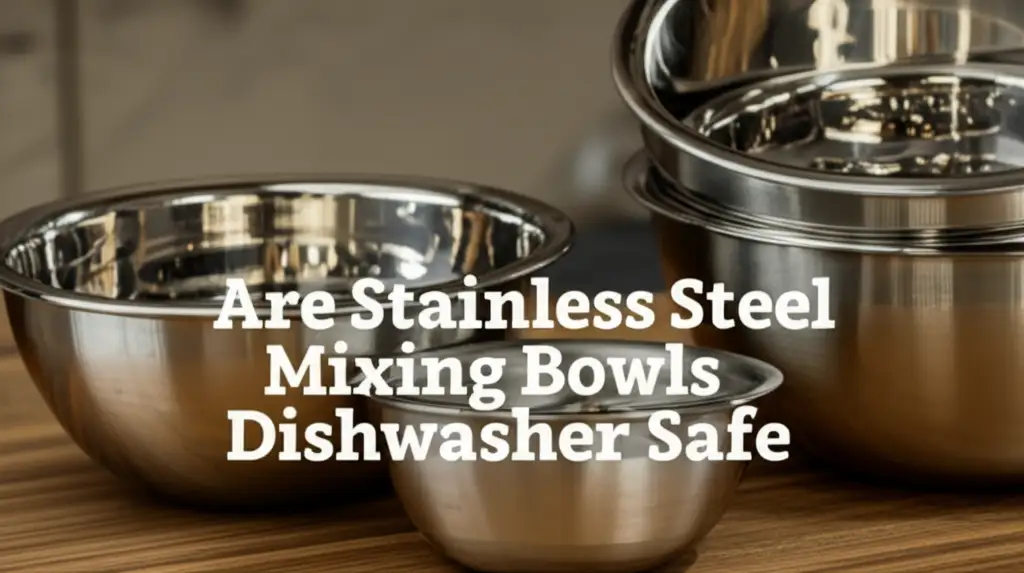· Tessa Winslow · Kitchen Care · 12 min read
Should You Put Pans In The Dishwasher

Dishwasher Dilemma: Should You Put Pans In The Dishwasher?
The kitchen is a busy place. We all want to save time, especially when cleaning up after a meal. One big question often comes up: should you put pans in the dishwasher? It feels like a simple solution. Just load them in and let the machine do the work.
However, the answer is not always a straightforward “yes.” Different types of pans react differently to the high heat, harsh detergents, and powerful water jets inside a dishwasher. Placing the wrong pan in could lead to damage, ruin the pan, or even shorten its life. My goal here is to help you understand which pans are safe for the dishwasher and which are not. We will explore various materials, discuss the potential risks, and share tips for keeping your cookware in top condition.
Takeaway
- Always Check: Look for a “dishwasher safe” label or manufacturer instructions.
- Material Matters: Certain materials, like cast iron and non-stick, are almost always handwash only.
- Heat and Detergent: High temperatures and strong detergents can damage pan surfaces and finishes.
- Handwashing Preserves: For valuable or delicate pans, handwashing extends their lifespan and performance.
A Quick Answer
You should put pans in the dishwasher only if they are explicitly labeled “dishwasher safe” by the manufacturer. Most stainless steel pans are suitable, but delicate materials like non-stick, cast iron, and copper require handwashing to prevent damage and maintain their performance.
Understanding Dishwasher Safety Labels for Pans
You see that “dishwasher safe” label on many kitchen items. But what does it truly mean for your pans? This label often indicates that an item can withstand the typical environment inside a dishwasher. This includes hot water, strong detergents, and powerful spray.
However, “dishwasher safe” is not always a guarantee of indefinite life. It simply means the item will likely survive without immediate damage. Some manufacturers might label something “dishwasher safe” even if repeated cycles could lead to gradual wear. Always remember the intensity of a dishwasher cycle. It is a harsh environment for many cooking surfaces.
Some items might be “top rack only” or specify a “gentle cycle.” This tells you the material is more sensitive to intense heat or direct water pressure. I always advise checking the specific care instructions that came with your pan. These instructions are the best guide for how to maintain your cookware. Ignoring them can lead to damage and a shorter lifespan for your favorite pots and pans. Many brands, like Tasty pans, even specify their dishwasher safety. You can learn more about if are tasty pans dishwasher safe.
Non-Stick Pans: A Dishwasher No-Go?
Non-stick pans are fantastic for cooking. Their surfaces let food slide off easily, making cleanup simple. However, these delicate surfaces are rarely friends with the dishwasher. The high heat inside a dishwasher can degrade the non-stick coating over time.
Strong detergents used in dishwashers are also very abrasive. They can wear away the non-stick layer. This wearing leads to food sticking more often. It can also cause the coating to flake or peel, which is not safe for cooking. Non-stick pans often have handles made of different materials, like plastic or silicone. These handles might not withstand the high temperatures, leading to warping or melting. Even if a non-stick pan claims to be “dishwasher safe,” repeated cycles will almost certainly reduce its effective lifespan.
To keep your non-stick pans performing well, always handwash them. Use warm, soapy water and a soft sponge. Avoid abrasive scrubbers that can scratch the delicate surface. This simple step protects the coating and ensures your pan lasts much longer. It keeps your food from sticking.
Cast Iron Cookware: Strictly Handwash
Cast iron pans are incredibly durable. Many home cooks love them for their even heat distribution and ability to last for generations. However, cast iron cookware is a definite “no” for the dishwasher. This material requires special care to maintain its seasoned surface.
Seasoning is a layer of baked-on oil that creates a natural non-stick coating. It also protects the iron from rust. A dishwasher’s hot water and strong detergents will strip away this seasoning. Once the seasoning is gone, your cast iron pan becomes vulnerable to rust. It will also lose its non-stick properties.
Instead of the dishwasher, clean cast iron by hand. Use hot water and a stiff brush or scraper. Avoid soap if possible, especially for newly seasoned pans. If you must use a tiny bit of soap, rinse quickly and thoroughly. After washing, dry the pan completely over low heat on the stove. Then, apply a thin layer of cooking oil. This re-seasons the pan and keeps it protected. Proper care ensures your cast iron cookware remains a valuable tool in your kitchen for many years.
Stainless Steel Pans: Often Dishwasher Friendly
Stainless steel pans are a kitchen staple for many. They are durable, versatile, and generally forgiving. Good news for stainless steel owners: most stainless steel pans are indeed dishwasher safe. This material is resistant to rust and corrosion. It handles high heat well.
However, there are still some things to watch out for. Stainless steel can sometimes develop a cloudy film or “rainbow stain” after dishwasher cycles. This happens due to mineral deposits from hard water or reactions with certain detergents. While this is usually cosmetic and does not affect the pan’s performance, it can be annoying. Pitting can also occur, especially if harsh detergents sit on the surface for too long.
To keep your stainless steel pans looking their best, consider a few points. You can use a gentle dishwasher detergent. Also, make sure to load them so water can reach all surfaces. If you notice a film or discoloration, a good scrub with a stainless steel cleaner can often restore their shine. For optimal care, handwashing with warm soapy water is still the gentlest option. You might also want to understand more about can you use dishwasher liquid in dishwasher for the right detergent choice.
Copper and Aluminum Pans: Handle With Care
Copper and aluminum pans are beautiful and functional, but they require careful handling, especially when it comes to dishwashers. These materials react differently to the dishwasher environment compared to stainless steel or cast iron.
Copper Pans: Copper cookware is prized for its excellent heat conductivity. However, it is a soft, reactive metal. Dishwashers can cause significant damage to copper pans. The high heat can discolor the copper, turning it dull or spotty. Strong detergents can also strip away the pan’s protective lacquer finish, leading to oxidation and tarnishing. Over time, repeated dishwasher cycles will ruin the aesthetic appeal and potentially the cooking performance of copper. Handwashing is the only way to truly preserve the beauty and functionality of your copper cookware. Use warm water, mild soap, and a soft cloth, then dry immediately to prevent water spots.
Aluminum Pans: Aluminum pans, especially those that are not anodized, are also problematic for the dishwasher. Regular aluminum reacts poorly with the alkaline detergents used in dishwashers. This reaction can cause the aluminum to darken, pit, or develop a white, powdery residue. It can also make the pan look dull and chalky. Anodized aluminum cookware has a hardened, non-reactive surface. These pans are generally more resistant to dishwasher damage. However, even with anodized aluminum, the high heat can sometimes affect the finish or warp the pan. Always check the manufacturer’s instructions for anodized aluminum. If in doubt, handwash regular aluminum pans to keep them bright and functional.
Ceramic, Glass, and Enamel Cookware: Mostly Safe
When it comes to ceramic, glass, and enamel-coated cookware, the dishwasher safety varies. Most of these materials can handle the dishwasher, but there are important exceptions and best practices to follow.
Ceramic Cookware: Modern ceramic cookware often features a non-stick coating that is much more durable than traditional PTFE (Teflon) coatings. Many ceramic-coated pans are labeled dishwasher safe. However, like other non-stick surfaces, repeated dishwasher cycles can still reduce the lifespan of the ceramic coating. High heat and harsh detergents can slowly degrade the surface, making it less non-stick over time. If your ceramic pan has an exposed ceramic base or handles, these are generally very durable and fine for the dishwasher. For maximum longevity of the non-stick surface, handwashing remains the gentlest option.
Glass Cookware: Glass bakeware, like Pyrex or similar brands, is typically dishwasher safe. These items are designed to withstand high temperatures and rapid temperature changes from oven to wash. However, extreme temperature shocks can still cause glass to crack or shatter. Make sure glass cookware has cooled down completely before placing it in a hot dishwasher. Also, avoid overloading the dishwasher with heavy glass items to prevent chipping or breaking during the cycle. Glass lids for pans are also usually safe.
Enamel Cookware (e.g., Le Creuset, Staub): Enamel-coated cast iron pots and pans are very popular. The enamel coating protects the cast iron from rust and makes it easier to clean. Many manufacturers state their enamel cookware is dishwasher safe. However, the high heat and strong detergents can dull the vibrant colors of the enamel over time. They can also scratch the glossy finish, especially if items rub together during the wash cycle. For beloved and expensive enamel pieces, most experts recommend handwashing. This preserves the luster and prevents any potential damage to the enamel or chips along the rims. A gentle hand wash with warm, soapy water is usually enough to clean them effectively.
Best Practices for Dishwasher Pan Care
If you decide to put your dishwasher-safe pans in the machine, follow these best practices. These tips help protect your cookware and ensure proper cleaning. They also keep your dishwasher running efficiently.
First, scrape off all food scraps before loading pans. Large food particles can clog the dishwasher filter. A clogged filter means less effective cleaning for your pans and dishes. It can also lead to foul odors in your machine.
Next, load pans carefully. Place them to allow water and detergent to reach all surfaces. Avoid blocking the spray arms. Large pans can sometimes prevent the water from reaching other items in the dishwasher. This leads to poorly cleaned dishes. Ensure pans are not touching each other too tightly to prevent scratching or chipping during the wash cycle.
Consider using a mild dishwasher detergent. Harsh, abrasive detergents can be hard on cookware finishes over time. Look for detergents that are gentle or “free and clear.” These options still clean effectively without being overly aggressive. You might want to consider how to use dishwasher liquid in dishwasher for better results.
Always skip the heated dry cycle for pans. High heat, especially prolonged heat, can warp certain pan materials or damage non-stick coatings. It can also bake on water spots, making pans look dull. Instead, open the dishwasher door after the wash cycle. Let the pans air dry. If needed, dry them by hand with a clean cloth.
Finally, do not overcrowd the dishwasher. Overloading prevents proper water circulation. This means some items may not get clean. It also increases the risk of pans rubbing against each other and causing scratches or damage. A well-maintained dishwasher also cleans better. Remember to clean your dishwasher filter regularly. This prevents buildup and ensures good water flow. You can learn more about how often should you clean your dishwasher filter. For a complete cleaning guide, check out how to clean and disinfect a dishwasher.
FAQ Section
Q1: Can I put all “dishwasher safe” pans in the dishwasher without worry? A: Not entirely without worry. While a pan labeled “dishwasher safe” will generally survive, repeated cycles can still lead to gradual wear, dulling, or minor cosmetic issues over time, especially with certain finishes or materials. For maximum longevity, handwashing is often preferred, even for safe items.
Q2: What happens if I accidentally put a non-dishwasher safe pan in? A: A single wash might not cause severe damage, but it can initiate problems. Non-stick coatings might begin to degrade, cast iron could start to rust, and aluminum might discolor. It is best to remove it immediately, hand wash properly, and inspect for any changes.
Q3: How do I clean heavily soiled pans without a dishwasher? A: For stubborn food, soak the pan in warm, soapy water for 15-30 minutes. Then, use a plastic scraper or a non-abrasive sponge to gently remove residue. For burnt-on food, a paste of baking soda and water can be effective, allowed to sit for a while before scrubbing.
Q4: Can putting a pan in the dishwasher void its warranty? A: Yes, if the manufacturer explicitly states the pan is not dishwasher safe, putting it in the dishwasher can void its warranty. Always refer to the care instructions provided with your specific cookware to avoid losing warranty coverage for damage caused by improper cleaning.
Q5: Are pan lids safe for the dishwasher? A: Most pan lids, especially those made of glass or stainless steel, are dishwasher safe. However, inspect lids for plastic or silicone handles, knobs, or vents that might degrade in high heat. Always check individual care instructions to be sure, particularly for lids with complex parts.
Conclusion
Deciding whether you should you put pans in the dishwasher often comes down to two things: convenience versus preservation. While the dishwasher offers tempting ease, it is not the ideal cleaning method for all types of cookware. My advice is to always check the manufacturer’s specific instructions. This simple step can save you from damaging expensive or beloved kitchen items.
Materials like cast iron, copper, and most non-stick surfaces genuinely benefit from handwashing. This helps them maintain their unique properties and extends their lifespan. Stainless steel and certain ceramic or glass items are generally fine for the dishwasher, but even then, careful loading and avoiding heated dry cycles can make a difference. Ultimately, giving your pans the right care ensures they perform well for years to come. Choose wisely to keep your kitchen tools in top shape.





